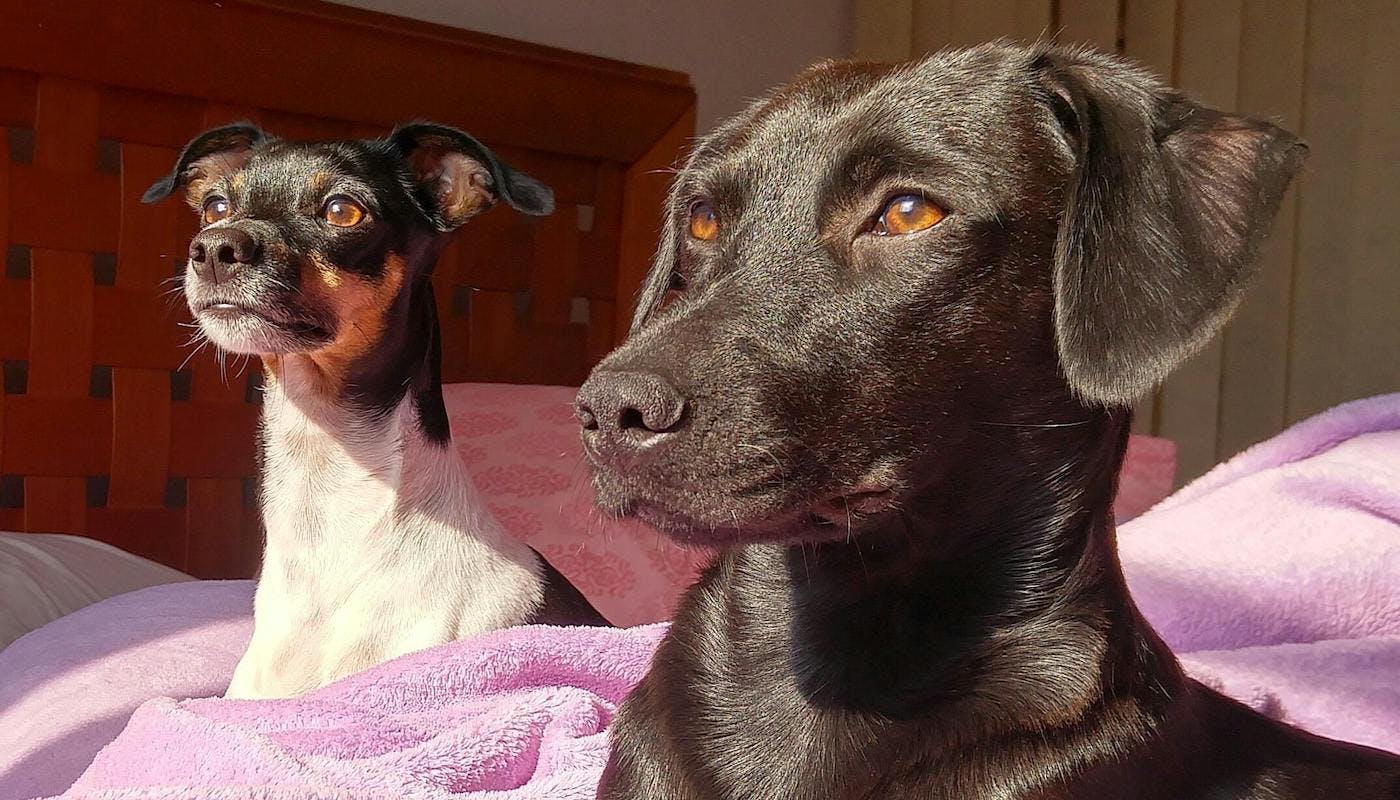Vitamin D For Dogs
Humans will know the importance of Vitamin D – often known as the sunshine vitamin. It affects our mood and our general wellbeing, and we soak it in from the sun. Dogs rely on Vitamin D, too. But unlike us, they can’t take it from the sun and need to get it all from their diet. And while both dogs and humans can suffer from Vitamin D deficiency, when it comes to your dog’s intake of the vitamin, it’s important to pay close attention as they’re also susceptible to Vitamin D poisoning.
So why do dogs and humans, who both need Vitamin D to live a healthy life, receive and process Vitamin D so differently? Read on, and we’ll explain the benefits and side effects, and how it's important you don’t approach your pet’s supplement intake the way you would your own.
What Is Vitamin D?
Vitamin D is a molecule that helps maintain calcium levels in the body.
Calcium is important for:
- Bone and muscle strength
- Muscle contraction
- Signalling between cells
- Coagulation of blood in response to injuries
Without enough calcium – or with too much – dog’s bodies face significant issues. And Vitamin D helps regulate this. In more scientific terms, it helps maintain calcium homeostasis.
Why Do Dogs Need Vitamin D?
By controlling calcium levels, Vitamin D is vital for your dog’s skeletal system to remain healthy. Because dogs are not as efficient at absorbing Vitamin D through their skin like humans and other mammals, they need to get their fill through their food. This then helps them to absorb calcium from their diet and keeps their bones and muscles strong.
How To Give Dogs Vitamin D
Dogs are able to absorb most of their Vitamin D from meat, so if your dog is on a raw meat diet there’s a good chance they’re getting the Vitamin D they need.
Most dog foods contain Vitamin D or ingredients that are rich in Vitamin D, but if you’re not sure, this list should explain some of the best Vitamin D-rich foods your dog can benefit from:
- Fatty fish like salmon, sardines, tuna, herring, and mackerel
- Egg yolks
- Beef liver
- Cheese
- Yogurt
- Fortified oats
- Mushrooms
- Squash
How Much Vitamin D Does Your Dog Need?
Your dog should intake 0.0125 - 0.075 mg of Vitamin D via food or 100 - 120 ng/ml of Vitamin D via supplements every day. But if you have any concerns that your pet might be Vitamin D deficient, you might consider a supplement.
How To Stop Vitamin D Deficiency In Dogs
Because most dog foods follow strict guidelines about the amount of Vitamin D dogs need in their diets, Vitamin D deficiency is rare – much rarer than it is in humans who often rely on the sun for their vitamin intake and spend too much time indoors.
In most cases Vitamin D deficiency in dogs can be reversed simply by increasing their intake or seeking medical advice on how to treat their existing issues. However, if your dog’s Vitamin D deficiency goes untreated it could lead to heart failure and other heart diseases, rickets, soft bones and other bone disorders including demineralisation.
If your dog is struggling with malabsorption or has underlying digestive issues that inhibit their ability to absorb Vitamin D then you should look out for the following symptoms:
- A decrease in muscle mass
- Brittle bones
- Fatigue
- Stunted growth in puppies
Vitamin D Overdose And Poisoning In Dogs
Though Vitamin D is naturally occurring and vital for your dog’s wellbeing, it is possible for them to have too much of a good thing. The most common cause of Vitamin D poisoning comes from dogs ingesting external medications or substances that contain potent levels of the vitamin. For example, some rodenticides and many topical psoriasis medications contain very high levels of Vitamin D that could poison your dog if they happen to lick or eat it.
Some poor-quality pet foods contain more than the regulated levels of Vitamin D have also led to Vitamin D poisoning in some dogs. The problem with this is Vitamin D will build up in their body and if their kidneys are unable to excrete it faster than it can be absorbed and processed, it can lead to toxicity and too much calcium in the body.
Signs that your dog has ingested too much Vitamin D include:
- Convulsions and tremors
- Vomiting and sometimes blood in the vomit
- Abdominal pain
- Excess saliva
- Weakness and lethargy
- Constipation
- Frequent urination and lack of control over bladder
- Excessive thirst
- Anorexia and weight loss
- Bloody or black poop
Additional Benefits
Both Vitamin D poisoning and Vitamin D deficiency are uncommon in dogs. But the benefits of your pet getting the right levels of this vital vitamin are essential for ensuring they live a long and healthy life. It can decrease the risk of cancers and heart diseases, keep their bones strong, and help treat a wealth of existing conditions.
As with any new supplement or medicine, it’s important to consult your vet as a first port of call if you believe your dog needs more or less of anything in their diet.
